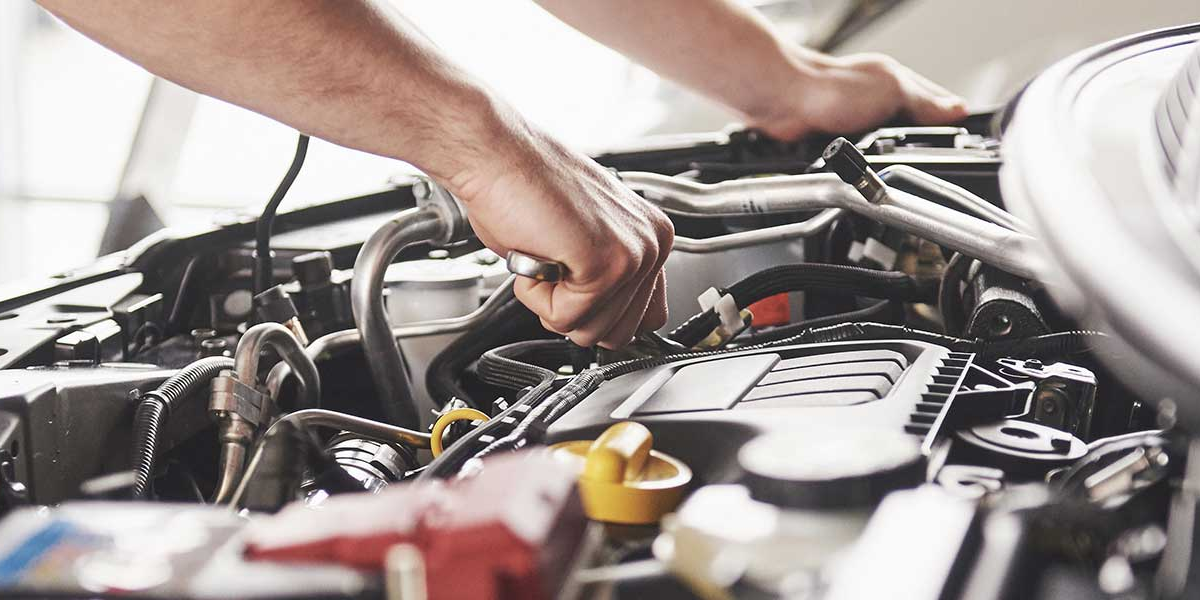
Image via Bob Maxey Ford.
A car battery is one of the most important yet least durable systems in your Ford. On average, a battery will work effectively for three to five years and then needs to be replaced. As your Ford dealership, we want to tell you about some signs that you need to visit us for a new car battery.
Lights Left On
Some battery problems can be caused by something as simple as leaving a switch on. It’s an easy oversight to accidentally leave the headlights on overnight and then be confronted by a slow-cranking engine the next day. The battery maintains your electrical systems while your engine is switched off, but it can only replenish its power when your engine is running.
Headlights can draw significant electricity overnight and easily deplete the battery’s reserves. In most cases, your battery will be weak or even dead, but it can be revived. We’ll test the battery to determine if it can be successfully recharged. If the battery has drained completely, it may have suffered too much damage. If this is the case, we’ll replace it for you.
Damaged Battery Case
Most batteries are rectangular, although square batteries also exist. The casing is manufactured from tough plastic to keep the battery chemicals inside and protect the battery contents against contamination by dirt or other debris. A battery contains an electrolyte solution which is usually 35% sulfuric acid and 65% water.
Extreme hot or cold conditions over a period disrupt the electrolyte balance, which increases pressure in the battery casing. The electrolyte tries to expand but is trapped by the battery casing. The increasing pressure forces the battery casing to distort and damages the battery even further. A damaged battery casing could also start to leak. We can’t repair a damaged battery case, but we can install a new battery.
Overcharging
When the alternator recharges the battery, it does so at full power for only ten minutes, then switches to charging at 10% of battery capacity. The reduced charging rate is designed to protect the battery against damage, as a large and sustained electrical charge can damage the battery. Overcharging occurs when a damaged alternator fails to switch to the reduced charging rate.
As the alternator continues to charge the battery at a high rate, the battery will overheat, and the electrolyte solution inside it will boil. This causes additional damage to the battery and weakens it even further. If your battery is being overcharged, the battery warning light will illuminate. We’ll replace the alternator, and we may need to replace the damaged battery.
Battery issues are quick and easy to fix. Contact the experts at Bob Maxey Ford (Detroit) in Detroit, MI.



